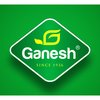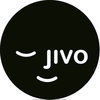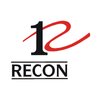Filter interviews by
Pax Chem Production Manager Interview Questions and Answers
8 Interview questions
Flow control process is the management of the rate of flow of materials or information through a system.
It involves monitoring and regulating the movement of materials or information through a system.
It ensures that the system operates efficiently and effectively.
Examples include managing the flow of raw materials through a production line or controlling the flow of data through a computer network.
The three types of organic solvents are polar protic, polar aprotic, and nonpolar solvents.
Polar protic solvents have a hydrogen atom attached to an electronegative atom like oxygen or nitrogen.
Polar aprotic solvents do not have a hydrogen atom attached to an electronegative atom.
Nonpolar solvents have no dipole moment and are not miscible with water.
Examples of polar protic solvents include water, methanol, and e...
The angle of response in the chemical industry refers to the degree of reaction to changes in market demand, supply, and pricing.
The chemical industry is highly responsive to market changes due to the nature of its products.
The angle of response can vary depending on the specific chemical product and its market demand.
Factors that can affect the angle of response include production capacity, availability of raw ma...
Materials required for planning include raw materials, equipment, labor, and production schedules.
Raw materials needed for production
Equipment required for manufacturing
Labor needed for production process
Production schedules to plan and coordinate activities
Inventory levels to ensure availability of materials
Cost estimates to determine budget
Quality standards to ensure product meets specifications
Design considerations for chemical slurry pipeline
Material compatibility with the slurry
Corrosion resistance of the pipeline material
Proper sealing to prevent leaks and spills
Sufficient flow rate to prevent settling of solids
Proper insulation to maintain temperature and prevent solidification
Regular cleaning and maintenance to prevent buildup and blockages
The third law of thermodynamics states that the entropy of a perfect crystal at absolute zero is zero.
The entropy of a perfect crystal at absolute zero is zero
It is impossible to reach absolute zero temperature
Entropy of a system approaches a constant value as the temperature approaches absolute zero
It is used to calculate the absolute entropy of a substance
It is important in the study of phase transitions
Just-in-time (JIT) is a production strategy aimed at reducing flow times and inventory costs by producing only as needed.
JIT minimizes inventory levels, reducing storage costs and waste.
Example: A car manufacturer receives parts only when needed for assembly, avoiding excess stock.
It requires precise demand forecasting to ensure materials arrive just in time.
Example: A bakery bakes bread based on daily customer de...
Solvent is a substance that dissolves a solute to form a solution. Operation unit is a single step in a process, while process unit is a series of interconnected steps.
Solvent is a liquid that dissolves a solute to form a homogeneous mixture.
Operation unit is a single step in a process, such as mixing or heating.
Process unit is a series of interconnected steps that work together to produce a final product.
Examples...
Pax Chem Production Manager Interview Experiences
1 interview found
I applied via Recruitment Consultant and was interviewed in Jul 2021. There were 3 interview rounds.
Interview Questionnaire
11 Questions
- Q1. What is the career choice as per qualification?
- Q2. What is the role of you in any industry?
- Ans.
As a Production Manager, I oversee manufacturing processes, ensuring efficiency, quality, and timely delivery of products.
Coordinate production schedules to meet deadlines, e.g., managing shifts to optimize output.
Implement quality control measures, such as regular inspections to maintain product standards.
Manage resources effectively, including labor and materials, to minimize waste and reduce costs.
Collaborate with o...
- Q3. What is solvent? Tell me difference between operation unit & process unit?
- Ans.
Solvent is a substance that dissolves a solute to form a solution. Operation unit is a single step in a process, while process unit is a series of interconnected steps.
Solvent is a liquid that dissolves a solute to form a homogeneous mixture.
Operation unit is a single step in a process, such as mixing or heating.
Process unit is a series of interconnected steps that work together to produce a final product.
Examples of o...
- Q4. Tell design consideration of pipe line os chemical slurry?
- Ans.
Design considerations for chemical slurry pipeline
Material compatibility with the slurry
Corrosion resistance of the pipeline material
Proper sealing to prevent leaks and spills
Sufficient flow rate to prevent settling of solids
Proper insulation to maintain temperature and prevent solidification
Regular cleaning and maintenance to prevent buildup and blockages
- Q5. What is material required for planning?
- Ans.
Materials required for planning include raw materials, equipment, labor, and production schedules.
Raw materials needed for production
Equipment required for manufacturing
Labor needed for production process
Production schedules to plan and coordinate activities
Inventory levels to ensure availability of materials
Cost estimates to determine budget
Quality standards to ensure product meets specifications
- Q6. What is the three types of organic solvent?
- Ans.
The three types of organic solvents are polar protic, polar aprotic, and nonpolar solvents.
Polar protic solvents have a hydrogen atom attached to an electronegative atom like oxygen or nitrogen.
Polar aprotic solvents do not have a hydrogen atom attached to an electronegative atom.
Nonpolar solvents have no dipole moment and are not miscible with water.
Examples of polar protic solvents include water, methanol, and ethano...
- Q7. What is the just in time in process?
- Ans.
Just-in-time (JIT) is a production strategy aimed at reducing flow times and inventory costs by producing only as needed.
JIT minimizes inventory levels, reducing storage costs and waste.
Example: A car manufacturer receives parts only when needed for assembly, avoiding excess stock.
It requires precise demand forecasting to ensure materials arrive just in time.
Example: A bakery bakes bread based on daily customer demand,...
- Q8. Tell me third law of thermodynamic?
- Ans.
The third law of thermodynamics states that the entropy of a perfect crystal at absolute zero is zero.
The entropy of a perfect crystal at absolute zero is zero
It is impossible to reach absolute zero temperature
Entropy of a system approaches a constant value as the temperature approaches absolute zero
It is used to calculate the absolute entropy of a substance
It is important in the study of phase transitions
- Q9. What is the angle of response in the chemical industry?
- Ans.
The angle of response in the chemical industry refers to the degree of reaction to changes in market demand, supply, and pricing.
The chemical industry is highly responsive to market changes due to the nature of its products.
The angle of response can vary depending on the specific chemical product and its market demand.
Factors that can affect the angle of response include production capacity, availability of raw materia...
- Q10. What is flow control process?
- Ans.
Flow control process is the management of the rate of flow of materials or information through a system.
It involves monitoring and regulating the movement of materials or information through a system.
It ensures that the system operates efficiently and effectively.
Examples include managing the flow of raw materials through a production line or controlling the flow of data through a computer network.
- Q11. Tell me you sit on chaiman chair for one hrs, how you fill?
- Ans.
As chairman for an hour, I would focus on strategic vision, team empowerment, and immediate operational improvements.
Assess Current Strategy: Review the company's strategic goals and identify any gaps or areas for improvement, such as market expansion or product innovation.
Engage with Employees: Hold a brief meeting with key team members to gather insights and feedback on current challenges and opportunities, fostering...
Interview Preparation Tips
Top trending discussions






Interview questions from similar companies

I applied via Naukri.com and was interviewed in Aug 2024. There were 2 interview rounds.
(2 Questions)
- Q1. Why are you job change
- Q2. What is ur current CTC
(2 Questions)
- Q1. HACCP GMP TPM like questions ask me
- Q2. PRODUCTION AND MANAGEMENT RELEVANT
Interview Preparation Tips
I applied via Naukri.com and was interviewed in Feb 2024. There were 2 interview rounds.
(1 Question)
- Q1. Formal Discussion about Profile and Experience
(2 Questions)
- Q1. Finance control round
- Q2. Technical analyst and solution

I applied via Walk-in and was interviewed in Dec 2024. There was 1 interview round.
(2 Questions)
- Q1. Asked for total experience
- Q2. How to manage working culture
- Ans.
Managing working culture involves setting clear expectations, fostering open communication, promoting teamwork, and leading by example.
Set clear expectations for behavior and performance
Foster open communication through regular team meetings and feedback sessions
Promote teamwork and collaboration among team members
Lead by example by demonstrating desired behaviors and values
Address any conflicts or issues promptly and ...
Interview Preparation Tips

I applied via Company Website and was interviewed before Mar 2023. There was 1 interview round.
30 mins, mostly related to food tech

Social media boon or bane for society
(2 Questions)
- Q1. Self introduction and technical round
- Q2. Question about in around

I applied via Company Website and was interviewed in Apr 2024. There were 2 interview rounds.
It was fun games that tested your logic, analytical, and creative thinking.
Give me 3 ideas that will make a revolution in the smartphone sector. Ideas should be totally new not similar to existing ones.
Interview Preparation Tips

Pymetrics tests involving easy psychiometric tests
(1 Question)
- Q1. Why you ? And why this places?
- Ans.
I am a dedicated and hardworking individual with relevant skills and experience. I believe my passion for this field and commitment to excellence make me a strong candidate for this position.
I have a strong background in the field, with relevant education and experience.
I am passionate about the work that this organization does and align with its values and mission.
I have a track record of success in similar roles, wit...

Territory Sales Executive Interview Questions & Answers
Philip Morris Internationalposted on 27 Mar 2021
I applied via Naukri.com and was interviewed in Mar 2021. There were 3 interview rounds.
Interview Questionnaire
1 Question
- Q1. About my previous company. How we generate sales, how increase sale., about territory, distribution etc
Interview Preparation Tips

I applied via Referral and was interviewed before Jul 2021. There were 2 interview rounds.

(1 Question)
- Q1. How i handled my Territory, how i managed the sales
Interview Preparation Tips
Pax Chem Interview FAQs
Tell us how to improve this page.
Interview Questions for Popular Designations
- Assistant Manager Interview Questions
- Deputy Manager Interview Questions
- Production Engineer Interview Questions
- Senior Manager Interview Questions
- Operations Manager Interview Questions
- Production Supervisor Interview Questions
- Production Officer Interview Questions
- Production Incharge Interview Questions
- Show more
Interview Questions from Similar Companies
Pax Chem Production Manager Reviews and Ratings
based on 1 review
Rating in categories
|
Supply Chain Executive
11
salaries
| ₹2.1 L/yr - ₹3.4 L/yr |
|
Microbiologist
7
salaries
| ₹2.2 L/yr - ₹2.8 L/yr |
|
HR Executive
6
salaries
| ₹2.4 L/yr - ₹3.2 L/yr |
|
Accountant
4
salaries
| ₹1.7 L/yr - ₹3.8 L/yr |
|
Graphic Designer
4
salaries
| ₹2 L/yr - ₹4.2 L/yr |

Ushodaya Enterprises

RSH Global

Ganesh Grains

Jivo Wellness
- Home >
- Interviews >
- Pax Chem Interview Questions










